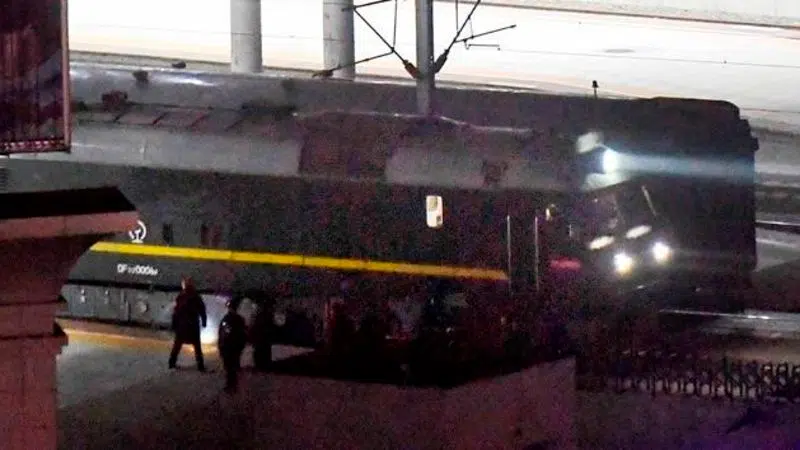
North Korea leader Kim Jong Un boards train to summit
DANDONG, China — North Korea leader Kim Jong Un was on a train Sunday to Vietnam for his second summit with President Donald Trump, state media confirmed.
Kim was accompanied by Kim Yong Chol, who has been a key negotiator in talks with the U.S., and Kim Yo Jong, the leader’s sister, the North’s official Korean Central News Agency reported. TV footage and photos distributed by the North’s state-run news agency showed Kim inspecting a guard of honour at the Pyongyang station before waving from the train.
Late Saturday, an Associated Press reporter saw a green-and-yellow train similar to one used in the past by Kim cross into the Chinese border city of Dandong via a bridge.


